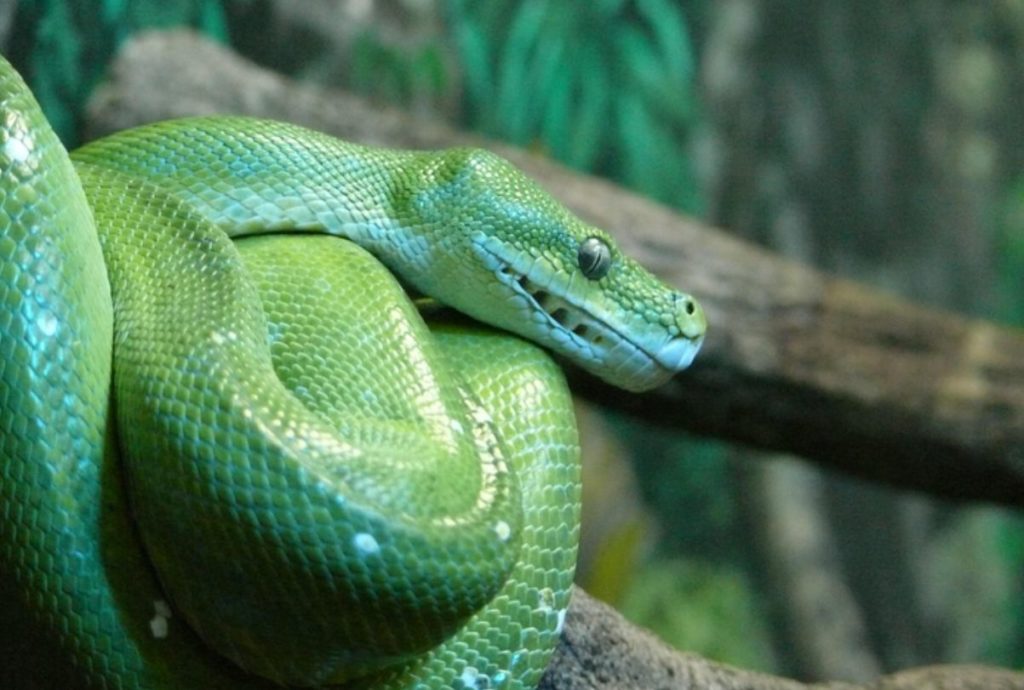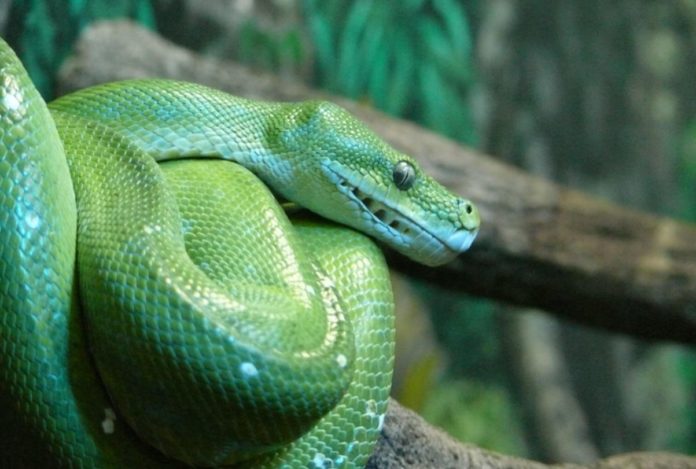New study suggests the more you like nature and feel a part of it, the less likely you are to have a snake or spider phobia, which is an anxiety illness that can drastically reduce your quality of life.
For the first time, research of over a thousand people in Hungary has discovered that those who feel more connected to nature are less likely to have fears or phobias of snakes and spiders. The findings were published in People and Nature, a journal of the British Ecological Society.
Researchers from Hungary, the Czech Republic, and Portugal employed clinically validated questionnaires to assess participants’ fear of snakes and spiders, as well as their sense of connection to nature. They discovered that persons who had a strong self-perceived connection to nature – including a want to be close to nature and a desire to defend it – were less likely to have a strong fear of snakes and spiders.
Because of this link, the researchers believe that a connection to nature could be a protective factor against snake and spider phobias, two of the most common animal phobias.
Dr. Jakub Polák at Charles University, Czech Republic, and co-author of the study says: “Analysis of our data showed one clear picture: the more you like nature and feel a part of it, the less you are at risk of developing a snake or spider phobia, an anxiety disorders which can significantly lower your quality of life.”

Dr. Coelho at the University of Porto, Portugal, and co-author of the study, stressed that the association found in this study can go both ways: “A connection to nature may cause people to experience less fear of snakes and spiders. However, it is also possible that people with lower fear of snakes and spiders are consequently more interested in nature and feel a stronger connection with the natural environment.”
The researchers also collected demographic data from the participants and found older age and living in less urbanised environments were also associated with reduced fear of snakes and spiders.
The study findings add to the growing evidence of the positive effects from spending time in nature and feeling connected to it, such as improved health, enhanced mood, and reduced stress.
Dr András Norbert Zsido, at the University of Pécs, Hungary, and co-author of the study said: “Connectedness to nature, can have a wide range of positive effects. In our study we find that it may prevent the development of animal phobias or could facilitate coping with such fear if they already exist. It’s also been shown that being connected to nature carries health benefits and can result in more knowledge and a more positive attitude towards animals, along with greater environmental responsibility.”
Fear of snakes and spiders are thought to stem from threats in our evolutionary history. While these fears can protect us, having a phobia – an extreme or irrational fear – can cause significant distress and interfere with a person’s day-to-day life as they try to avoid all confrontation with the phobic stimulus.
In the study the researchers assessed participants’ connection to nature using the Nature Relatedness Scale. This questionnaire asks participants to agree or disagree with statements covering attitudes to conservation, feelings of belonging to nature and ease of being outdoors in the wilderness. Higher scores indicate a stronger connection with nature.
To assess participant’s fear of snakes and spiders, the researchers used established questionnaires that are used in clinical screenings for phobias. Participants answered questions on fainting or avoidance in reaction to snakes and spiders and were then shown images of the animals and asked to rate them along three scales: whether they perceived the images to be unpleasant or pleasant, whether the images made them feel calm or excited, and whether they felt dominance or dominated by the animals in the pictures.
Because the study was correlational and didn’t collect longitudinal data, the researchers were not able to determine the direction of the relationship between connection to nature and animal fears. Dr Zsido explained: “This was a cross-sectional study, so we were not able to measure possible effects of nature relatedness on fears over time. Whether pro-environmental education and increased time spent in natural environments could reliably decrease fears is still an open question.”
The researchers are now hoping to explore whether their findings would be the same for other animal phobias or apply to other cultures around the world.
Dr Polák said: “I would like to see if the same association between connectedness to nature and animal fears would be found in other countries with a different culture, different levels of urbanisation, and potentially different attitudes towards animals. We suppose that fear of snakes and spiders is universal all over the world, but is the protective role of nature connectedness universal as well? That would be worth future research.”
Understanding what causes animal phobias to persist also interests the researchers. Dr Coelho added: “I would like to know why some people never seem to leave behind their fears, even if they have a lot of experience with the object that evokes the feeling. Is this due to the nature of the stimuli itself, or maybe to individual differences?”
Source: 10.1002/pan3.10303
Image Credit: Getty
You were reading: Nature connectedness reduces the risk of snake and spider phobias
